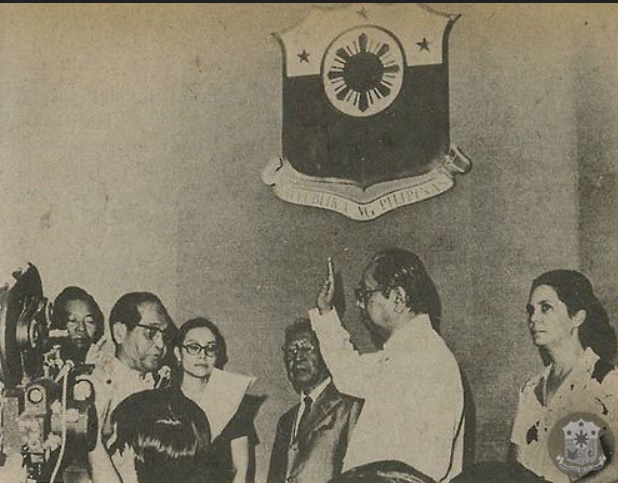It was the period that anteceded martial law. At that time, the Marcos lust for eternal power was beginning to unravel. And it unraveled even if the dictator had to pull the puppet strings of the 1971 Constitutional Convention for all to see, without shame or remorse.
Marcos Sr. was a cunning operator. The idea to have a new constitution did not come from him. It came from the political opposition in Congress. When it was passed into law as Republic Act 6132, lo and behold Marcos endorsed it, which came as a surprise to the Marcos critics. The unfolding events tell us why.
The first order of the day for Marcos and Imelda was to ensure election of their loyal lieutenants as delegates. The law stipulated 320 delegates. Then the ConCon leadership was central for the Marcoses. The convention president had to be a Marcos supporter. Two former Philippine presidents were elected – Diosdado P. Macapagal representing Pampanga’s 1st District, and Carlos P. Garcia representing Bohol’s 3rd District.
Nene Pimentel, a delegate representing Misamis Oriental recounted in his book Martial Law in the Philippines: My Story how Marcos engineered the election of Garcia as ConCon president. Pimentel related that there was a “Marcos Politburo” in the ConCon composed of the dictator’s henchmen: Arturo F. Pacificador of Antique (the future mastermind of Evelio Javier’s assassination), Venancio L. Yaneza of Masbate, Domingo Veloso of Leyte’s 4th District and Gilberto M. Duavit of Rizal’s 2nd District.
Man proposes – in this case a dictator in the making who subverted ways at power perpetuation – God disposes. The ConCon officially convened on June 1, 1971 at the Quezon City Hall. Thirteen days later, on June 14, Garcia died from a heart attack. What was unthinkable to Marcos happened – his old nemesis Macapagal was elected as the second ConCon president.
The dictator was already looking forward to use the ConCon as a tool that will engineer the extension of his term limit as president. As National Artist Nick Joaquin later wrote in Reportage on the Marcoses, 1964-1970 – Marcos decided “to leave nothing to chance.” By way of the ConCon a legal justification could be invented to perpetuate himself in power.
Lifting of term limits – those were the magic words that Marcos salivated, the same naked ambition that ails our current elective officials.
The patriots in the ConCon lost no time in introducing a “Ban the Marcoses” provision in the new constitution. The brave Napoleon Rama of Cebu introduced a resolution and was signed by 176 delegates.
The Committee on Suffrage and Electoral Reforms, chaired by the freedom fighter Raul S. Manglapus (Rizal, 1st District), then drafted a resolution which stated that “No person who has served as President of the Philippines shall be eligible to occupy the same office or that of chief minister or chief executive any time in the future, nor shall his spouse or relatives to the second degree by consanguinity or affinity be eligible to occupy the same office during any unexpired portion of his term or in one immediately succeeding term.”
Because of the Marcos partisans among the delegates, deliberations on the ban dragged on. Marcos successfully maneuvered its delay to leave it unresolved until he declared martial law in 1972.
On May 19, 1972, a scandal erupted. A bribery scheme was exposed by no less than the man who represented Leyte’s 1st District and was indebted to the Romualdezes because Imelda’s brother supported his election. Eduardo Quintero was a former ambassador to the United Nations. The 72-year old Quintero revealed that there was a money lobby in the ConCon to pay delegates to vote in favor of provisions that would prolong the Marcoses’s stay in power.
Quintero named the principals behind the money lobby – 12 of his fellow delegates, the wife of Leyte congressman Artemio Mate, and Imelda Marcos the first lady. The Quintero exposé confirmed public suspicions that the Marcoses were influencing the proceedings. The exposé shook the country. Overnight, Quintero became a hero. Cars in Manila plastered signs of “Mabuhay Quintero.” Today, Quintero’s name is etched as a hero in Bantayog ng mga Bayani.
Marcos was a vengeful man. Through an Ilocano judge of the court of first instance in Leyte, a search warrant enabled the National Bureau of Investigation to search Quintero’s Manila house. They found (planted?) P379,320 – a huge amount – in an unlocked cabinet. The implication was Quintero had received money from the Marcos opposition to fabricate the story about the exposé.
When martial law was declared, who were among the first to be jailed? Eleven anti-Marcos delegates of the ConCon.
There are many lessons here to be learned. The current house bill/resolution does not prohibit the election of family members and relatives of currently sitting congressmen and senators. Who in this country has the wherewithal to run a campaign as delegate to a constitutional convention? Congressmen, senators, provincial governors and mayors. Expect it to be a family affair.
Expect term limits to be lifted. It will be a constitution that will serve only the best interests of the political elite. The so-called “economic provisions” will just be a smokescreen. We live in evil times.
The views in this column are those of the author and do not necessarily reflect the views of VERA Files.
